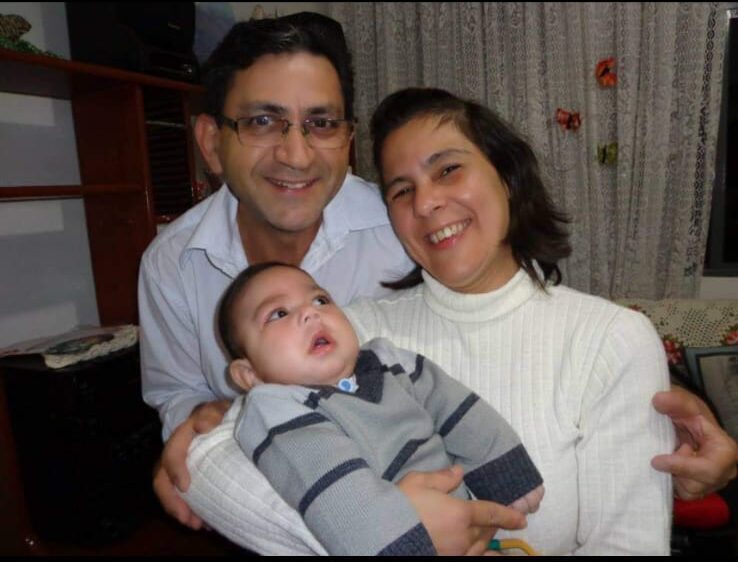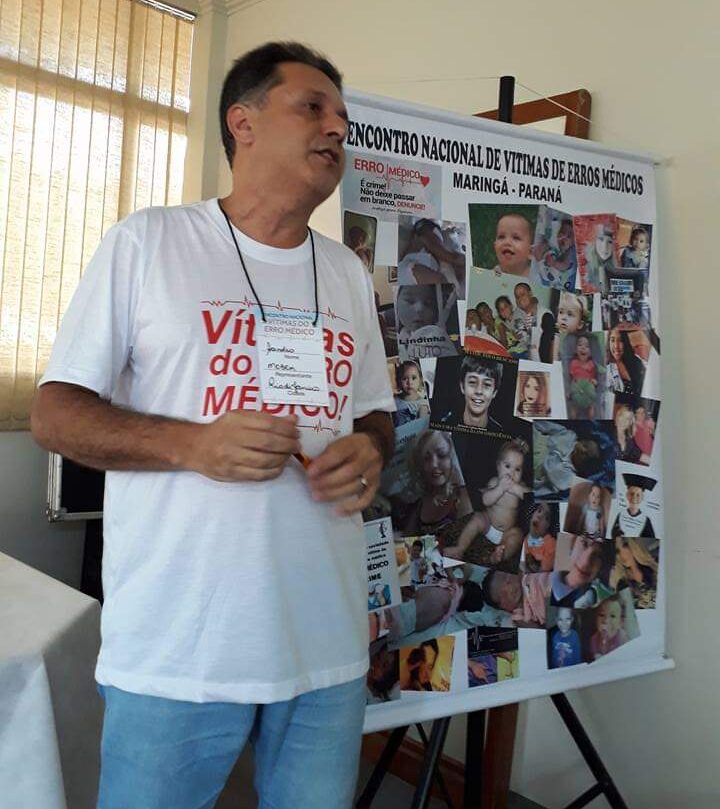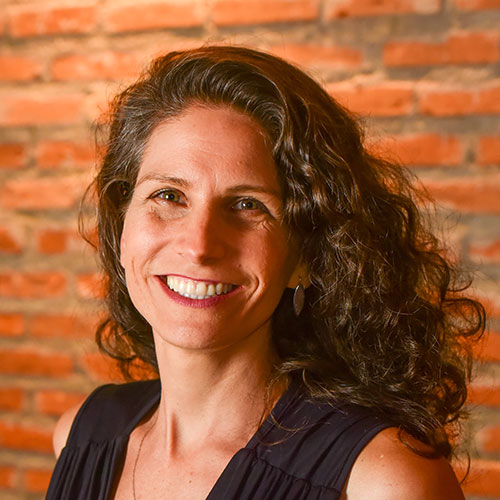Victims of medical errors set up association in search of justice
ANAVEM offers shelter and legal advice to its more than 2,500 members; many victims have been able to appeal court decisions


Jonathan Silva was a baby who was wanted and waited for with great care. His development during pregnancy was healthy, with all the necessary assistance and without any complications during prenatal care. Some medical errors during labor, however, caused him to be born with a lack of oxygen, which led to severe cerebral palsy and a short life of only 7 years.
“My son was a victim of hypoxic-ischemic encephalopathy during birth. We got the hospital and the nurses convicted, but, since the doctor was considered a primary defendant, he made a plea bargain,” explains the father, Jonas Lourenço Silva.
He and his wife Jacheline Batista Pereira Silva are the main organizers of the Associação Nacional de Vítimas de Erros Médicos (National Association of Medical Error Victims, ANAVEM), which was founded in 2018 and nowadays has around 2,500 members. Relying on the support of volunteer professionals, ANAVEM has been maintained with funds from Jonathan’s compensation.
“Today I try, along with my wife, lawyers and some doctors who have accompanied us on our journey, to apply this knowledge, giving guidance, support and, above all, welcoming other victims, because like us, people who go through this are all bewildered,” says Jonas, who is also president of ANAVEM.
Medical errors
According to Jonas, Jacheline suffered negligence and obstetric violence at the hospital where she was treated in Maringá, Paraná. Under the care of unprepared nurses and with only one doctor on duty, failures in care left sequelae that would have been fatal to her son’s survival.
“We took part in the Cegonha program, which encourages normal childbirth, throughout the prenatal period. And when we arrived at the hospital, already in labor, the gynecologist who attended us did the touch test and said it would take a while. My wife was admitted, but there was no monitoring. During this time, the doctor went to perform a cesarean section on another patient. But after a short time, the bag burst. There was a lot of blood and meconium, but it took a while for us to get assistance,” says Jonas.
“The gynecologist claimed he was alone. When he finally saw us, he took our son out in an emergency cesarean section and the baby was already blue. In other words, he was literally dead. He didn’t move, he didn’t cry. That’s when the doctor invented a premature placental abruption. But what happened was precisely the delay in care, the delay in removing the baby. He was born with an Apgar score of 0.3 (a scale of 0 to 10 that measures a newborn’s health in the first five minutes after birth; the higher the score, the better the baby’s clinical condition). The whole resuscitation process took around 30 minutes, after which he was sent to the neonatal ICU,” she continues.
“When the cesarean section was finished, the doctor called me in and, putting his hand on my shoulder, said that the baby was alive, but wouldn’t survive, that I should take care of my wife, because she could have severe postpartum depression. I said: ‘Doctor, I saw what you did. What happened in the hospital, I followed carefully. So, from now on, I’ll only talk to you in the light of justice,” he said.
Jonathan spent around three months in the hospital’s ICU, but everything had to be taken to court. “After 10 days, the hospital announced that it was going to disconnect my son’s survival equipment and my wife, who is a lawyer, had to file a precautionary measure. The judge ordered the hospital to keep him alive as long as there were technical and scientific conditions.”
After this period, Jonathan went home, where a complete hospital structure was set up to maintain his well-being. Suffering from a serious health condition caused by a lack of oxygen to the brain during birth, however, he couldn’t resist and died shortly after his seventh birthday.

Patients’ rights
The sad story told by Jonas Lourenço Silva and Jacheline Batista Pereira Silva is not an isolated case. Like them, thousands of people are victims of medical errors every year in Brazil. Data from the National Health Surveillance Agency (Anvisa) indicates that there were 292,000 incidents involving health care failures in 2022.
According to Jonas, the largest number of complaints received by ANAVEM is linked to plastic surgery, followed by obstetric violence and gynecological errors. There is still no patient rights law in Brazil, however. Nor is obstetric violence classified as a crime, despite numerous reports of mistreatment of women during prenatal care, childbirth, postpartum and breastfeeding.
The World Health Organization points out that 3 million people die every year around the world as a result of harm associated with unsafe health care. So, to protect yourself from medical errors, Jonas suggests seeking references from professionals:
“If there is time, i.e. it’s not an emergency case where you need to seek immediate help, try to get to know the health professional who will be assisting you. Look up their CV in the Regional Councils of Medicine and the Federal Council of Medicine. You can also search the internet.”
In the event of the victim’s death, the following procedure must be followed: “The family member must file a police report of suspicion of the death and request an autopsy at the Forensic Medicine Institute, because it is then difficult to get the body exhumed by the courts. Besides, once the body has been buried, it is no longer possible to determine the cause of death.”
Jonas also recalls the importance of publicizing the case in the media. “The publicity given to the case helps, instigates and obliges both the judiciary and the prosecution to act, as well as health professionals. What caused the conviction of doctor Roger Abdelmassih, for example, was the notoriety given by the press (the doctor was convicted of rape, indecent assault and libidinous acts against 37 patients).”
ANAVEM
The Associação Nacional de Vítimas de Erros Médicos welcomes all types of victims of medical errors and relies on the voluntary work of specialized professionals, as well as offering awareness-raising talks on the responsibility of doctors and nurses in these situations.
Jonas warns that the relationship between patient and doctor must be one of trust and in situations of neglect or suspicion, it must be reported. “Health professionals can create subterfuges against patients and their families. But every hospital is obliged to have an ombudsman’s office for complaints, where patients can record everything in their own handwriting,” he says.
He recalls that the association arose from the meeting of dozens of victims of medical errors across the country. “We are living through a scourge, facing everything alone, so we sought out other victims so that we could share. Through social networks, I met victims in 16 Brazilian states and together with them we promoted the First National Meeting of Victims of Medical Errors in Maringá in 2018. There, the proposal to found an organization that could represent these cases was drawn up,” she says.


ANAVEM welcomes and advises victims and, when necessary, represents cases, all free of charge. According to him, some sentences have already been reversed. “We have a very serious situation today, not only of hospitals seeking to manipulate the courts in order to get a positive result, but also of some lawyers,” he says.
Victims who come to the organization always go through a careful verification process: “First, we study the case. Then we submit the medical records to an assessment by a collaborating doctor. After that, we appoint an expert. So when the case goes to court, most of them have already characterized the error, the negligence, what was committed,” concludes Jonas.
Would you like to support this cause?
ANAVEM accepts donations and volunteers. To find out how to join, contact ANAVEM at admreinoencantado@gmail.com.
To find out more, join the public group or follow the Facebook page.



